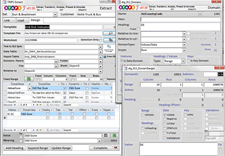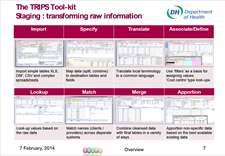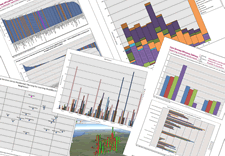Transforming Raw Information in Public Services (TRIPS)
The challenge set by the Department of Health
John Bolten, then of the Department of Health, kicked off a programme looking at the "Use of Resources" in social care - providing a much needed critical analysis of nationally published data. TRIPS attempted to provide councils with the ability to extend this analysis with local data. The councils in the East Midlands volunteered to pilot the idea, the Health & Social Care Information Centre where key stakeholders and the CIPFA Social Care and Welfare Reform Panel were continuously in the loop (see the publications section).
A lot achieved but timing not quite right
TRIPS was a low cost non-commercial solution to the problem, developed on a low budget basis, albeit with fantastic support from the councils involved. Its timing coincided with the new government when the role of the Information Centre, in particular, was under review. TRIPS continued to be used by a consultancy set up after CSED was wound down, but it never got taken up nationally. Technically, one of the problems was that, whilst steps could be automated, there was no push button solution at the end. XTAPS addresses this weakness.
Lots of usefull stuff was published ...
TRIPS Data Extraction Specification
TRIPS Detailed Overview
TRIPS End of Stage Report (National recommendations)
TRIPS Tehnical Manual (part written).
A unique solution for loading complex spreadsheets
Configurable tools to transform, map and load data
TRIPS has built tools to allow common transformation tasks to be configured without the need to resort to hundreds of bespoke SQL queries - this includes translation, mapping, look-ups, and so on. (Name matching and apportionement in debugging).
TRIPS links local data to "Use of Resources" analysis
TRIPS was the first solution to produce a full "Use of Resources" type analysis, combining local data with numerous nationally published data sets. It set a standard for others to follow. A comprehensive report on the pilot was published nationally.


